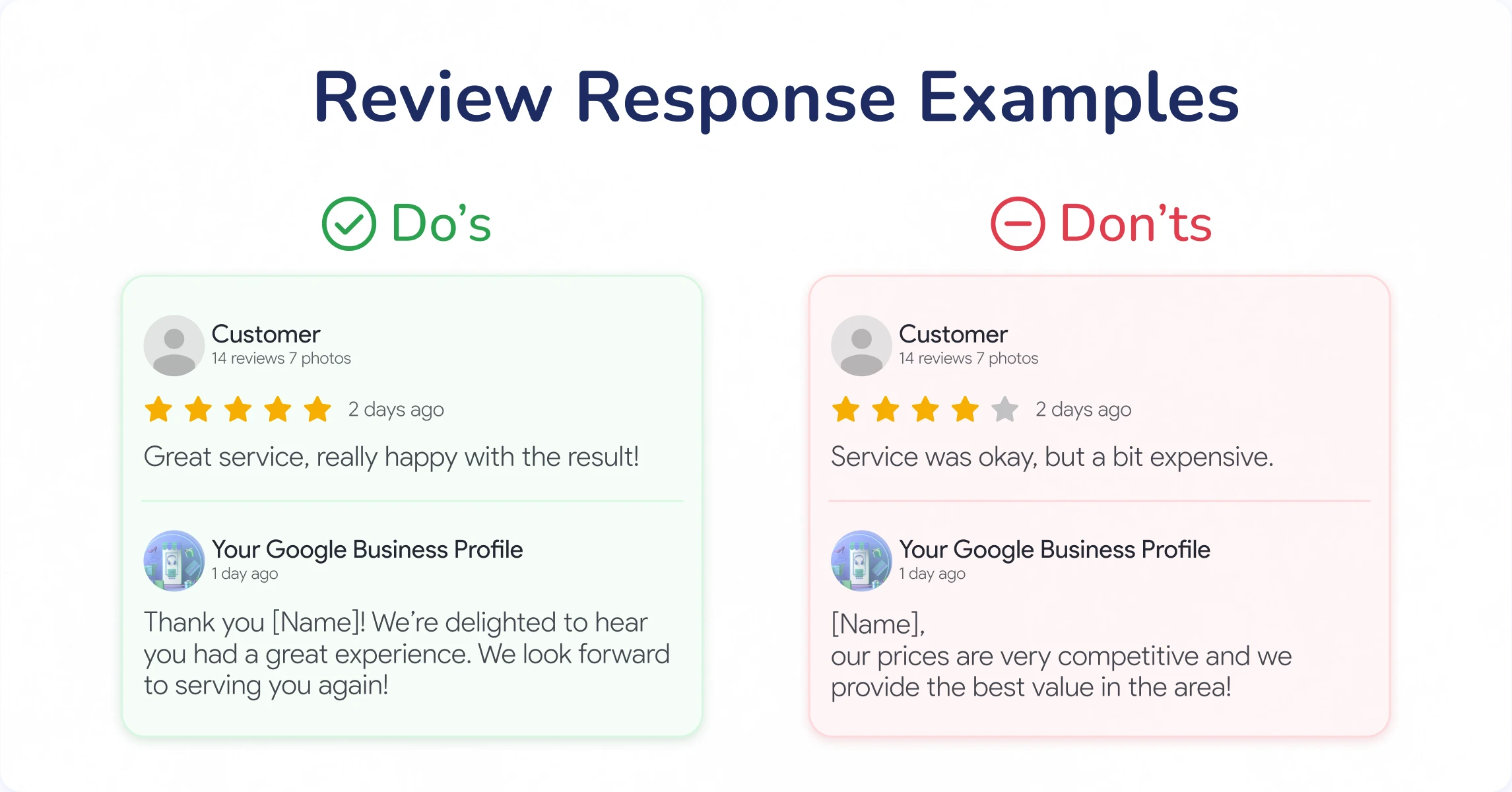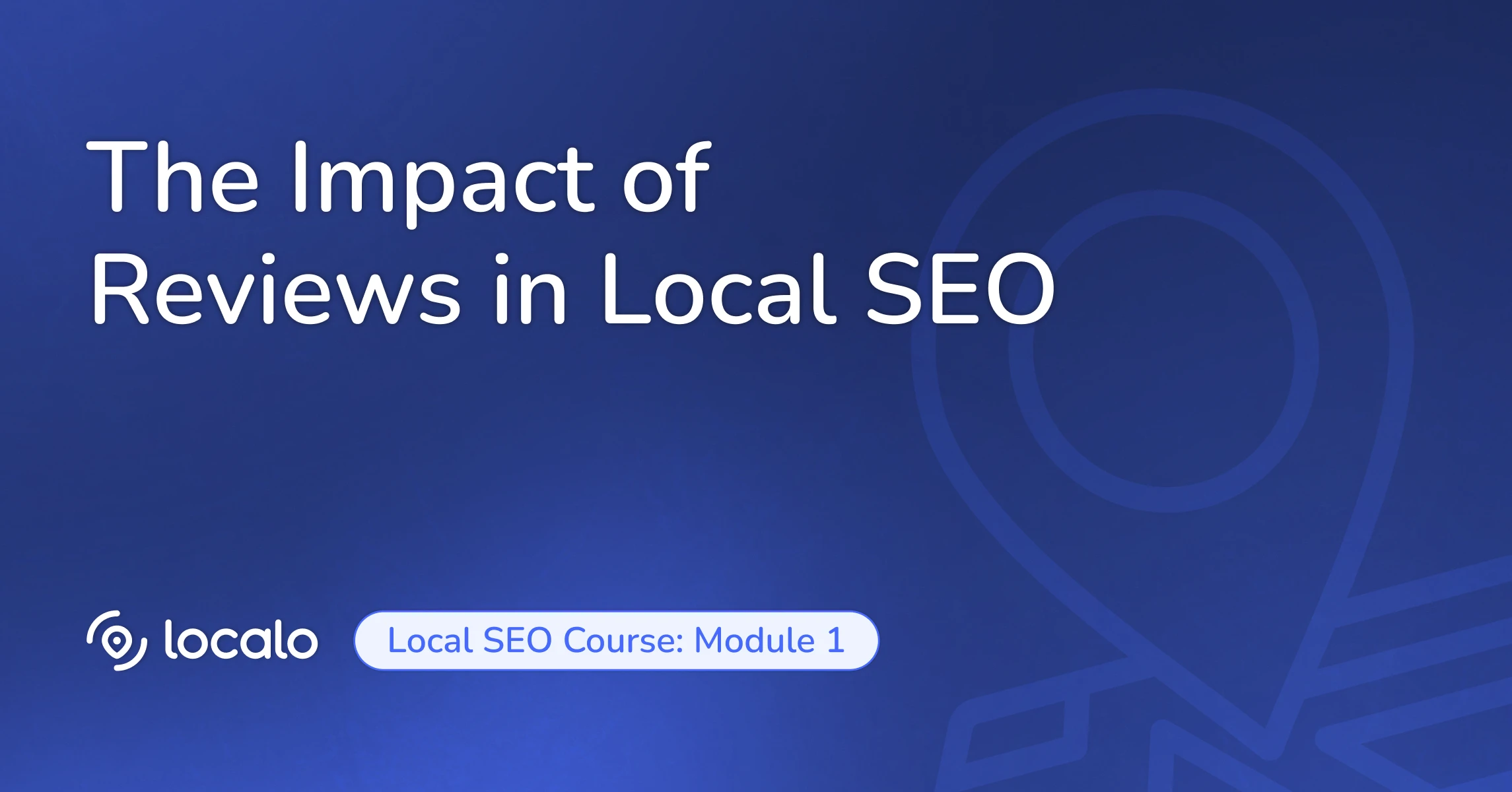Review Signals
Reviews have become increasingly important in local search rankings, and they serve a dual purpose—they help with both rankings and conversions. According to Google’s own research, 95% of consumers use reviews as part of their local business research. Just think about it: when was the last time you chose a restaurant or service provider without looking at their reviews?
Here’s what matters with reviews:
Review Quantity and Velocity
Research from SOCi shows that people are more likely to pick a business that has many reviews. For every 10 new reviews a business gets, the chances of converting visitors from Google profiles increase by 2.8%. A steady stream of new reviews shows that your business is active and engaging with customers. Google claims recent reviews are particularly important as they reflect the current state of your business.
Review Sentiment and Quality
According to a recent study by Whitespark, review sentiment is one of the top local ranking factors. The quality of reviews matters just as much as quantity—detailed, specific reviews that mention products, services, or location tend to have more impact on both rankings and consumer decisions.
Review Response Strategy
Data from Google shows that businesses that respond to reviews are considered 1.7 times more trustworthy than businesses that don’t. And it’s not only speed that matters in review management. It’s also your professionalism in handling negative reviews, personalized responses, and engagement consistency.

Welcome back to Localo Complete SEO Course! Today we’re focusing on a crucial aspect of local SEO: reviews. Reviews have become increasingly important in local search rankings, serving a dual purpose – they help with both rankings and conversions. Let’s explore how to leverage reviews for your local business success.
How do reviews impact your local rankings and conversions?
Reviews have become increasingly important in local search rankings, and they serve a dual purpose—they help with both rankings and conversions. According to Google’s own research, 95% of consumers use reviews as part of their local business research. Just think about your own behavior: when was the last time you chose a restaurant or service provider without looking at their reviews? Reviews act as powerful social proof that influences not just potential customers but also how Google evaluates and ranks your business. They serve as a direct signal of your business’s quality and reliability.
Why do quantity and velocity of reviews matter?
The number of reviews your business has and how frequently you receive new ones significantly impacts both your visibility and conversion rates. Research shows that for every 10 new reviews a business receives, the chances of converting visitors from Google profiles increase by 2.8%. This demonstrates a direct relationship between review quantity and business results. A steady stream of new reviews shows that your business is active and engaging with customers. Google particularly values recent reviews as they reflect the current state of your business rather than how it performed years ago. Businesses that consistently generate new reviews appear more relevant and trustworthy to both search algorithms and potential customers. This is why developing a sustainable strategy for encouraging reviews should be a priority for every local business.
How important is the sentiment and quality of reviews?
While quantity matters, the quality and sentiment of your reviews are equally crucial for local SEO success. According to research studies, review sentiment is one of the top local ranking factors. Google doesn’t just count your reviews—it analyzes what they say about your business. Reviews that specifically mention products, services, or location tend to have more impact on both rankings and consumer decisions. These detailed, specific reviews provide contextual information that helps Google understand exactly what your business offers and how well you provide it. The sentiment analysis goes beyond just star ratings. Google’s algorithms can understand the actual content of reviews, identifying positive and negative language, specific compliments or complaints, and recurring themes across multiple reviews.
What makes an effective review response strategy?
How you respond to reviews is almost as important as the reviews themselves. Data from Google shows that businesses that respond to reviews are considered 1.7times more trustworthy than businesses that don’t. This significant difference demonstrates how crucial active review management is for building consumer confidence. An effective review response strategy includes: Responding promptly to all reviews, both positive and negative. Personalizing your responses. Addressing specific points mentioned in the review. Thanking positive reviewers for their feedback. Responding professionally to negative reviews, acknowledging concerns, and offering solutions. Remember that your review responses are public—they’re not just for the reviewer but for everyone who reads that review in the future. A thoughtful response to a negative review can actually turn it into a positive by demonstrating your commitment to customer satisfaction.
Why should you diversify your reviews across platforms?
While Google reviews are most important for local SEO, having reviews on multiple platforms strengthens your overall online presence. Review diversity creates a more comprehensive reputation footprint. Reviews on industry-specific platforms (like Tripadvisor for restaurants or Healthgrades for medical practices) can reach audiences who may not be searching directly on Google. Different platforms attract different demographic groups. By maintaining a presence across multiple review sites, you can connect with a broader audience. Review diversity also provides redundancy in your reputation management strategy. If one platform changes its policies or algorithms, your business’s online reputation doesn’t depend entirely on that single source.
What review manipulation pitfalls should you avoid?
Here’s a situation many business owners face: frustrated with negative reviews, they’re tempted to manipulate their review profile. This can be a serious mistake. Review manipulation tactics to avoid include for example: Posting fake reviews or paying for review services and Filtering customers by only asking happy ones to leave feedback (called review-gating.
Google and other platforms are increasingly sophisticated at detecting these practices, and the consequences can include profile suspension, ranking penalties, or public flagging of suspicious reviews. Instead of trying to game the system, focus on providing excellent service that naturally encourages positive reviews. Then implement a consistent process for asking all customers for their honest feedback.
In our next lesson, we’ll explore how user behavior signals impact your local search visibility and how Google uses these signals to determine which businesses to show in search results. Thank you for joining me today, and I’ll see you in the next video!
The websites and Google Business Profiles used throughout the course are for educational purposes only. We're not affiliated with these businesses and don't claim any endorsement from them. All trademarks belong to their owners. Some examples include visual changes (made with browser tools) to help illustrate the SEO concepts we're teaching. These edits are strictly local and illustrative of specific SEO concepts. They don't affect the original websites.




